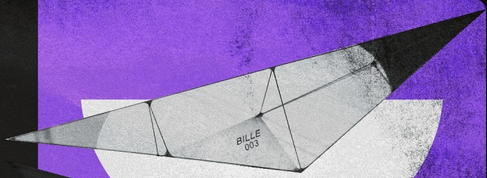Our main focus are mathematical and physical models of shape evolution with emphasis on geophysical and planetological applications, such as sand grains, pebbles, ventifacts, rock profiles, asteroids.

Our research group, founded in 2017, operates at the Budapest University of Technology and Economics and it is supported on a 5-year (2022-2027), renewable special grant from the Hungarian Research Network (formerly Eötvös Loránd Research Network). Our goal is to collect, develop and apply existing mathematical models and test the models versus existing and self-produced experimental and field data. Ultimately we would like to gain insight on geophysical history based on current size and shape measurements.
Recent activity related to our research group including student projects, publications and workshops. Click on the titles to read more.
 An interview on Bille (the recently discovered mono-monostatic tetrahedron) with Gergő Almádi has been published.
An interview on Bille (the recently discovered mono-monostatic tetrahedron) with Gergő Almádi has been published.
An Instagram post of Oxford Mathematics became viral on the Web, showing a water-filled soft cell floating at International Space Station. Physical measurements and experiments were organized by the HUN-REN Morphodynamics Research Group and conducted by Tibor Kapu. Further information can also be found on 24.hu.
 A paper titled “Calcitic coverings of the lower jaw of Jurassic ammonites exhibit Bouligand-like structures” was published in Communications Earth & Environment by Gábor Domokos, András Á. Sipos and Eszter Ferencz.
A paper titled “Calcitic coverings of the lower jaw of Jurassic ammonites exhibit Bouligand-like structures” was published in Communications Earth & Environment by Gábor Domokos, András Á. Sipos and Eszter Ferencz.
At this year’s Institutional Scientific Students’ Associations Conference at the Budapest University of Technology and Economics, five presentations were related to the HUN-REN Research Group of Morphodynamics.
 Gergő Almádi and Gábor Domokos, members of the HUN-REN Morphodynamics Research Group, has been recognized by the Rector’s Award of Budapest University of Technology and Economics for describing the first mono-monostatic tetarahedron named “Bille”.
Gergő Almádi and Gábor Domokos, members of the HUN-REN Morphodynamics Research Group, has been recognized by the Rector’s Award of Budapest University of Technology and Economics for describing the first mono-monostatic tetarahedron named “Bille”.
 Young researchers of our research group introduced new scientific results to the public at an exhibition in the Hungarian National Museum.
Young researchers of our research group introduced new scientific results to the public at an exhibition in the Hungarian National Museum.
An interview with Gábor Domokos appeared in HVG on different questions of contemporary research.
As a proof for a 40-year-old conjecture, Gábor Domokos and Gergő Almádi, members of our research group proved the existence of a mono-monostatic tetrahedron in a joint research with Robert Dawson. Further details are provided by the Quanta magazine.